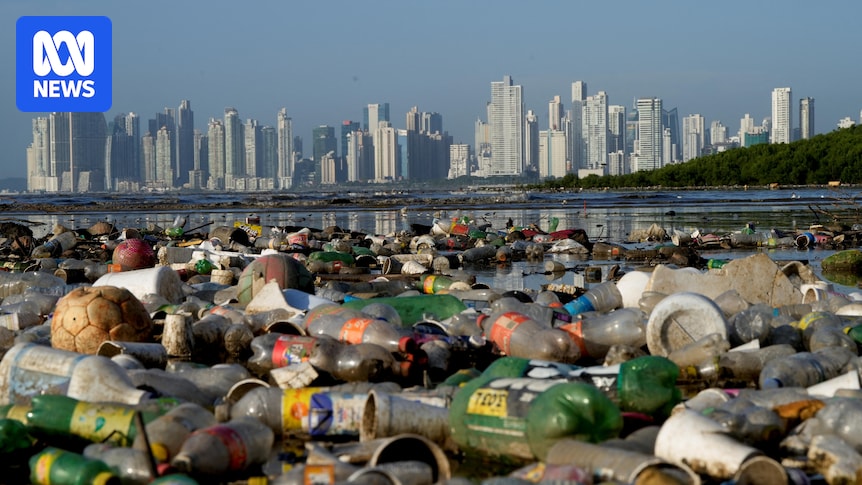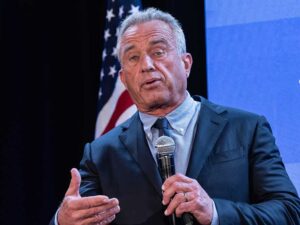
Talks aimed at establishing a landmark global treaty on plastic pollution ended without agreement, as 185 nations failed to reach a consensus on addressing the escalating environmental crisis. Negotiators worked beyond the Thursday deadline in Geneva, but divisions between countries advocating for bold measures and those favoring a narrower focus proved insurmountable.
The discussions, which extended into the night, highlighted the rift between nations pushing for significant reductions in plastic production and oil-producing states that prefer concentrating on waste management. Despite the collapse, several countries expressed their willingness to continue negotiations, even after six rounds of talks over three years have yet to yield a resolution.
“We have missed a historic opportunity but we have to keep going and act urgently. The planet and present and future generations need this treaty,” said a representative from Cuba. Colombia echoed this sentiment, stating, “The negotiations were consistently blocked by a small number of states who simply don’t want an agreement.”
Disappointment and Determination
The Pacific island nation of Tuvalu, speaking on behalf of 14 small island developing states, expressed profound disappointment. “For our islands, this means that without global cooperation and state action, millions of tonnes of plastic waste will continue to be dumped in our oceans, affecting our ecosystem, food security, livelihood, and culture,” the Polynesian archipelago stated.
Meanwhile, the High Ambition Coalition, which includes Australia, the European Union, Britain, and numerous African and Latin American countries, advocated for language in the treaty that would reduce plastic production and phase out toxic chemicals. However, a group of oil-producing states, including Saudi Arabia, Kuwait, Russia, Iran, and Malaysia, preferred a treaty with a more limited scope.
“Our views were not reflected … without an agreed scope, this process cannot remain on the right track and risks sliding down a slippery slope,” said Kuwait.
Stalled Progress and Future Prospects
The negotiations’ breakdown has left the future of a global plastics treaty uncertain. France’s Ecological Transition Minister Agnès Pannier-Runacher expressed frustration, accusing a handful of countries of prioritizing short-term financial interests over environmental responsibility. “Oil-producing countries and their allies have chosen to look the other way,” she remarked.
Despite the setback, some countries are calling for a seventh round of talks. The European Union described the latest draft as a “good basis for a resumed session,” while South Africa insisted, “It cannot end here.”
The talks in Geneva, initiated after the collapse of the fifth round of discussions in South Korea last year, began on August 5. Chair Luis Vayas Valdivieso attempted to salvage the negotiations by producing a draft text based on limited areas of agreement, but it was swiftly rejected by all parties.
By the Numbers: The Plastic Crisis
Globally, more than 400 million tonnes of plastic are produced each year, with half intended for single-use items. Despite 15 percent of plastic waste being collected for recycling, only 9 percent is actually recycled. Nearly half of the waste ends up in landfills, 17 percent is incinerated, and 22 percent is mismanaged, becoming litter.
On current trends, annual production of fossil-fuel-based plastics will nearly triple by 2060 to 1.2 billion tonnes, while waste will exceed 1 billion tonnes, according to the Organisation for Economic Cooperation and Development.
The pervasive nature of plastic pollution is evident, with microplastics found on the highest mountain peaks and in the deepest ocean trenches, as well as throughout the human body. The urgency for a comprehensive treaty is underscored by these alarming statistics and environmental impacts.
As the world grapples with the plastic pollution crisis, the failure to reach an agreement highlights the complexities of balancing environmental needs with economic interests. The path forward remains uncertain, but the call for continued dialogue and action is clear.





